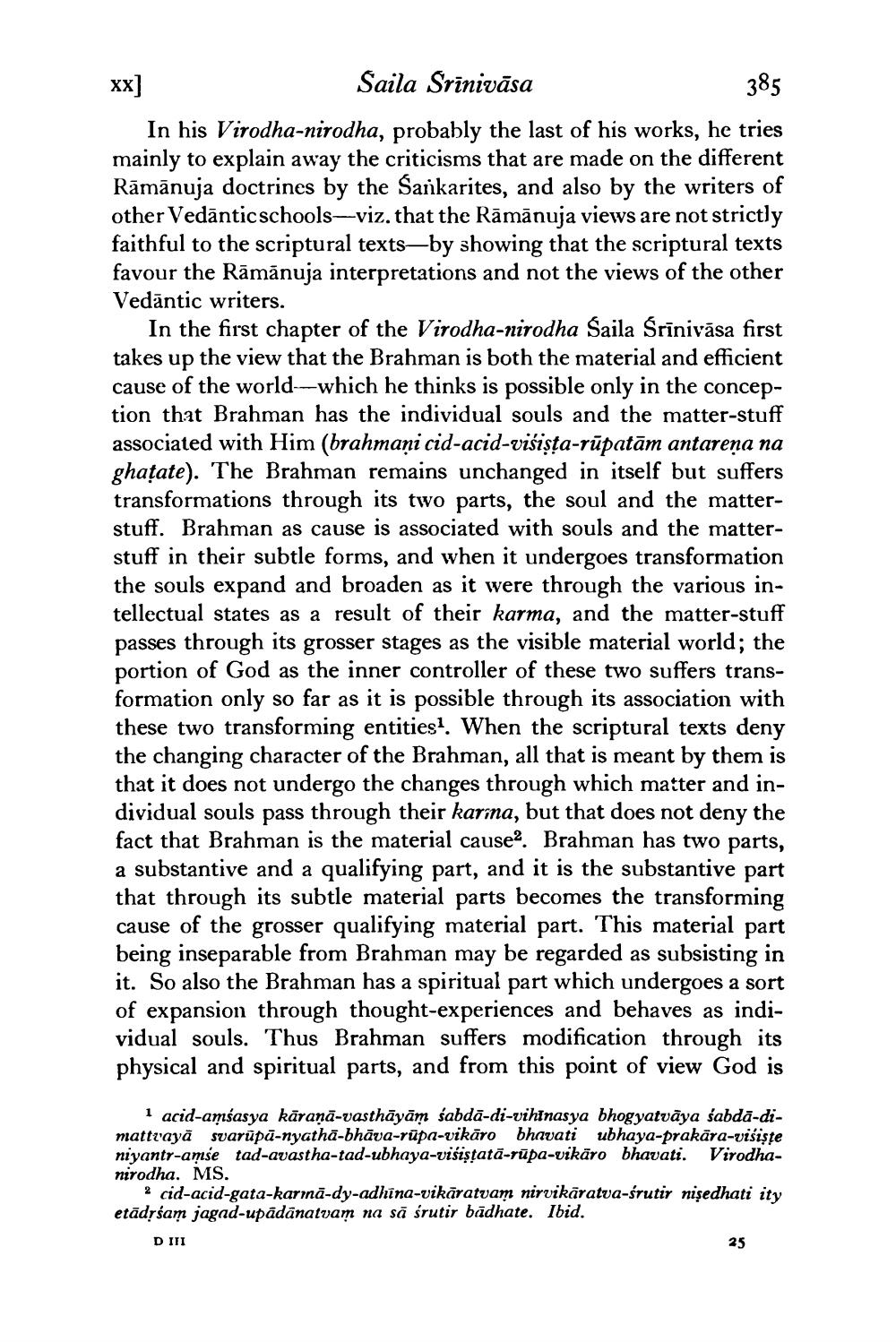________________
Xx] Saila Srīnivāsa
385 In his Virodha-nirodha, probably the last of his works, he tries mainly to explain away the criticisms that are made on the different Rāmānuja doctrines by the Sankarites, and also by the writers of other Vedānticschools-viz, that the Rāmānuja views are not strictly faithful to the scriptural texts—by showing that the scriptural texts favour the Rāmānuja interpretations and not the views of the other Vedāntic writers.
In the first chapter of the Virodha-nirodha Saila Śrīnivāsa first takes up the view that the Brahman is both the material and efficient cause of the world--which he thinks is possible only in the conception that Brahman has the individual souls and the matter-stuff associated with Him (brahmaņi cid-acid-višista-rūpatām antarena na ghațate). The Brahman remains unchanged in itself but suffers transformations through its two parts, the soul and the matterstuff. Brahman as cause is associated with souls and the matterstuff in their subtle forms, and when it undergoes transformation the souls expand and broaden as it were through the various intellectual states as a result of their karma, and the matter-stuff passes through its grosser stages as the visible material world; the portion of God as the inner controller of these two suffers transformation only so far as it is possible through its association with these two transforming entities'. When the scriptural texts deny the changing character of the Brahman, all that is meant by them is that it does not undergo the changes through which matter and individual souls pass through their karina, but that does not deny the fact that Brahman is the material cause. Brahman has two parts, a substantive and a qualifying part, and it is the substantive part that through its subtle material parts becomes the transforming cause of the grosser qualifying material part. This material part being inseparable from Brahman may be regarded as subsisting in it. So also the Brahman has a spiritual part which undergoes a sort of expansion through thought-experiences and behaves as individual souls. Thus Brahman suffers modification through its physical and spiritual parts, and from this point of view God is
1 acid-amśasya kāranā-vasthāyām sabda-di-vihinasya bhogyatvāya sabda-dimattrayā svarūpā-nyathā-bhāva-rupa-vikāro bhavati ubhaya-prakāra-višişte niyantr-amse tad-avastha-tad-ubhaya-višiştatā-rūpa-vikāro bhavati. Virodhanirodha. MS.
2 cid-acid-gata-karinā-dy-adhina-vikāratvam nirvikäratva-śrutir nişedhati ity etādssam jagad-upādanatvam na să śrutir būdhate. Ibid.
DINI
25




